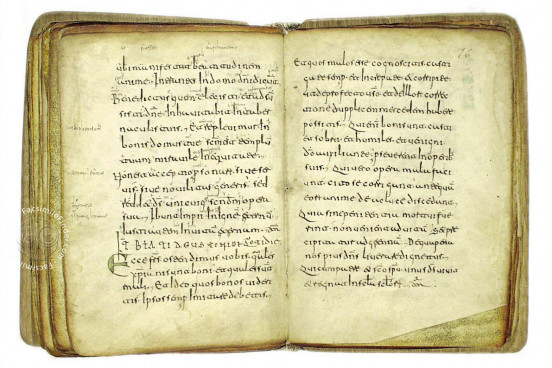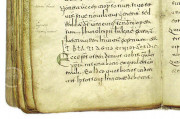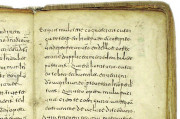The Glosas Emilianenses, produced in the 9th century in the Monasterio de San Millán de la Cogolla, became famous at the beginning of the 20th century when the philologist Ramón Menéndez Pidal recognized its annotations ("glosas") as an example of proto-Castilian. Today, due to its fundamental philological importance as the earliest surviving Castilian-language text, the entire manuscript has come to be known as Glosas Emilianenses.
While the Latin codex itself dates back to the 9th century, the annotations, or glosses, were written during the 10th century in the Monasterio de San Millán de la Cogolla, one of the main Spanish scriptoria of the Middle Ages.
At the time, the region was a mixture of various cultures (Castilian, Basque, Navarre, and Aragonese), which is the reason why traces of such languages are present in the text.
Page 72 includes a homily in Latin, beside which an anonymous monk scribe added annotations (“glosas”) in Castilian. It is the longest sentence in ancient Castilian included the whole codex.
The sentence is the following:
“Cono aiutorio de nuestro dueno dueno Christo, dueno salbatore, qual dueno get ena honore et qual duenno tienet ela mandatione cono patre cono spiritu sancto enos sieculos delo siecu los. Facamus Deus Omnipotes tal serbitio fere ke denante ela sua face gaudioso segamus. Amen.”
The document also contains two annotations by the same monk in Basque, representing the earliest written testimony of this language.
The great importance of the Glosas Emilianenses in the history of Spanish literature stems from the fact that it contains the first example of a syntactically complete sentence in the Romance language, as opposed to previous, isolated annotations.
The codex was removed from the San Millán monastery in 1821 together with 71 other documents, such as Gothic codices and incunables.
We have 1 facsimile edition of the manuscript "Glosas Emilianenses": Las Glosas Emilianenses facsimile edition, published by Egeria, S.L.
Request Info / Price


